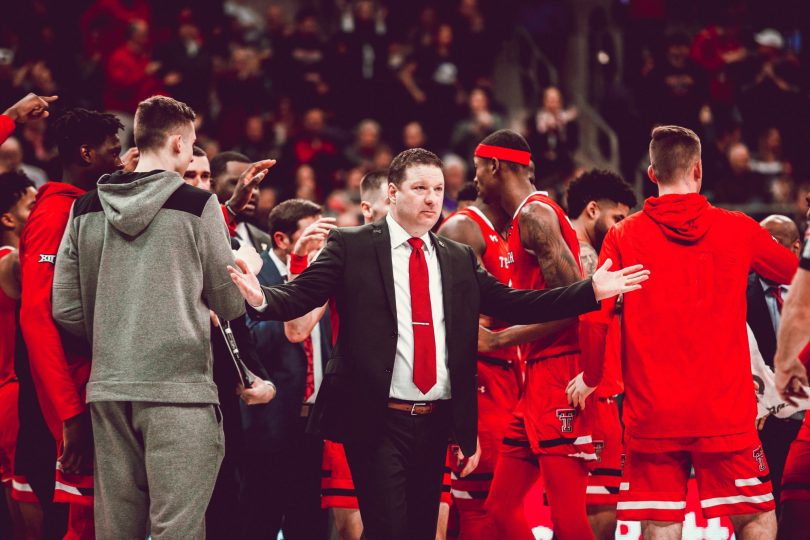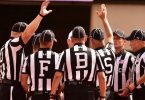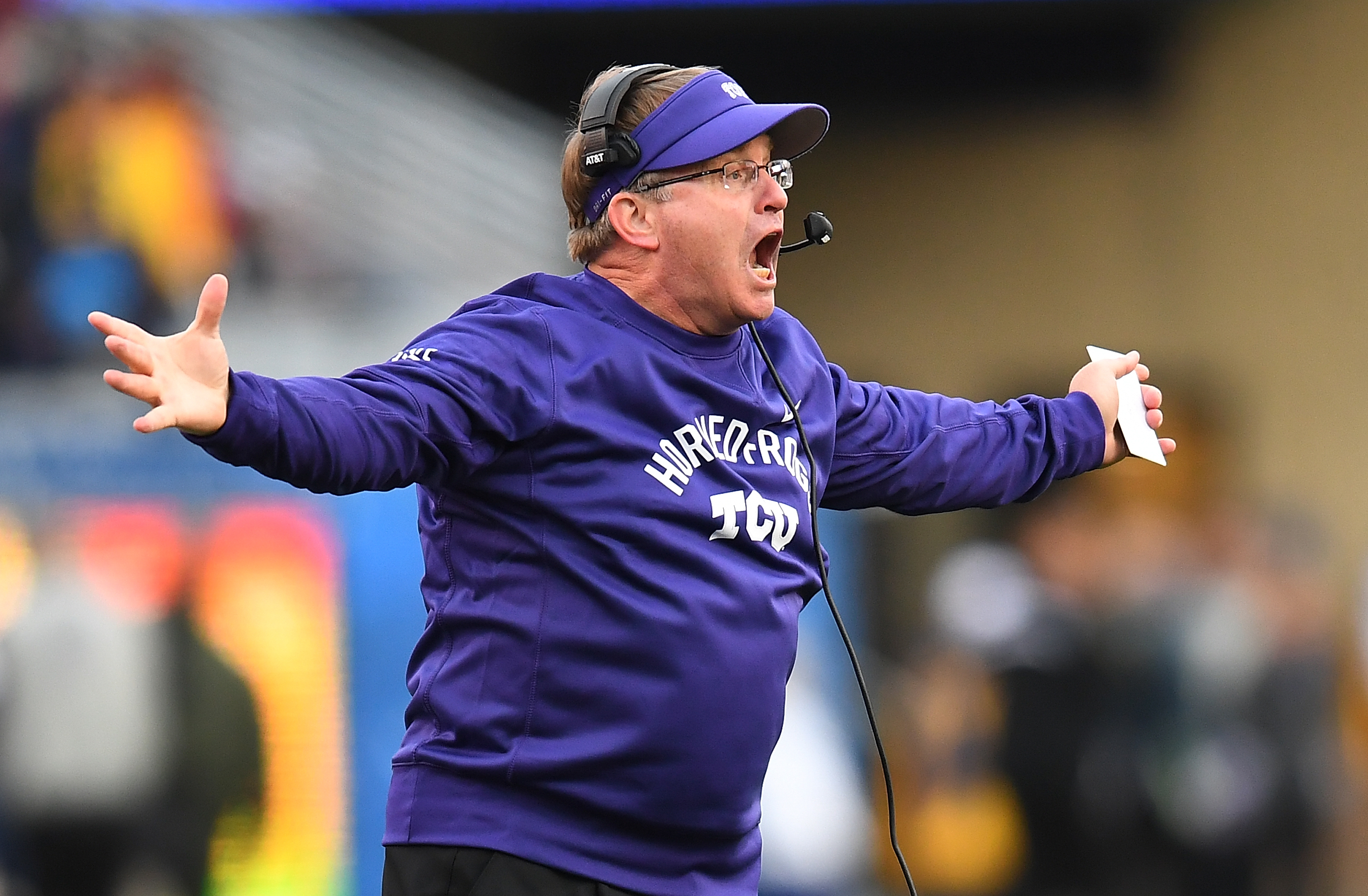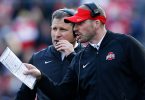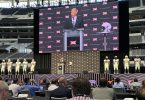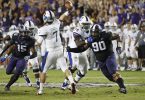Texas Tech and basketball coach Chris Beard renewed their vows the way they do these things in college athletics with more money – a lot more money – and more years, as well as setting financial terms should one or the other want to part one day.
After all, nothing is permanent these days, no matter the bliss of the moment.
The contract extension, however, represented a well-deserved reward for the coach and some security for the university, which followed up its moment on a big-league stage by giving the composer and conductor a major-league contract that would have made Polk Robison, longtime coach long ago, feel as if he had been knocked in the head with a Saddle Tramps cowbell.
Texas Tech administrators made Beard the third-highest paid college basketball coach in the nation with a six-year, $27.45 million contract extension on Monday that runs through the 2024-25 season.
Beard, who led the Red Raiders to the national championship game, will be paid as a blueblood at $4.57 million per year. Only John Calipari of Kentucky ($9.8 million) and Duke’s Mike Krzyzewski ($7 million) made more than that last season.
Beard earned $2.8 million in 2018-19 after agreeing to a first extension a year ago.
As if being a top-paid basketball coach wasn’t enough, Beard will also be paid more than football coach Matt Wells, who is working under a six-year deal worth $18.8 million. Wells will be paid $2.8 million in his first season.
Beard makes more money than the football coach … at a university in Texas.
Let that sink in.
All agree, though, even the football coach, that this is a very happy marriage between partners all interested in the same objective: the good of Texas Tech.
That’s one of the big differences in the story of Beard’s contract extension and the last time something like this took place on the South Plains.
There won’t be any emails between regents and administrators uncovered describing a very rocky bond.
It is less difference than stark contrast when comparing Tech’s dealing with Mike Leach’s long-term contract negotiation in 2009, only a few months after the Red Raiders completed the best football season in school history. At one point, Tech was No. 2 in the nation before getting a mouthful of red dirt in Oklahoma and another letdown in the Cotton Bowl.
Then, Texas Tech was ready and willing to leave Leach at the altar with visions of happily ever after.
Tech athletic director Gerald Myers held firm on an offer of five years and $12.7 million on an extension.
It was an offer Tech really hoped Leach make good on threats to walk away from. The coach had one more year left on his current contract. Few within the administration would have shed a tear had Leach actually found another job.
It wasn’t as if he hadn’t tried.
“Kent,” board of regents president Jim Sowell of Dallas wrote Tech chancellor Kent Hance, “they have no leverage, don’t give in. Also, I feel you should sign a contract that would not cost us too much to fire him. He has to have a big buyout, he has shown no loyalty, he has tried to get another job every year for the past four years.
“I promise you our prospects for getting a better coach are much higher than Mike’s prospects of getting a better job.”
It is safe to say 10 years later that Sowell’s email prophecy was shortsighted at least from the university’s perspective.
Leach is at Washington State, located in Pullman, Wash., which makes Alvarado look like New York City.
But at the end of the 2008 regular season, with contract talks with Texas Tech at a standstill, Leach traveled to Washington without Myers’ knowledge to meet with university officials there who were looking for a new coach.
The fan base and many other prominent alumni had a different opinion of Leach, who ultimately was fired less than a year later the first chance Myers had to pull the plug. The Adam James scandal gave the university cause and reason to end the relationship, not to mention get out from under the contract altogether.
That’s something Leach is still pursuing 10 years later. He claims Tech still owes him more than $2.5 million from the 2009 season. He has filed at least three lawsuits against the university and has lost them all.
He also has a web site, deployed as a gathering place for supporters and a petition. It doesn’t appear much has been done there in awhile.
It was true that Leach had raised the university’s profile like few, if any, had ever done before, what with his gimmicky offense and quirky personality that attracted reporters and the occasional gawker.
But in the end, for Leach, his interests always came first. He became entitled and suffered from the delusion that afflicts so many other coaches: The belief that he was bigger than the university.
So much so that he told Hance to “f— yourself,” something Leach denied but Hance confirmed.
“When I was in the third grade in Dimmitt, I knew if you told your boss to go ‘f’ themselves, you were probably going to be dealing with your former boss,” Hance said in 2014. “Mike didn’t realize that.”
Mission work also wasn’t his thing.
He was reluctant to do public relations events, shake hands and raise money, if he did it at all.
If Bob Knight could do it, Leach could’ve done it.
“I never asked him to do anything that he didn’t do,” Hance said of Knight in 2014. “If you asked him to go see an alum to help you raise money, he would do it. If you asked him to go to the hospital and see sick children, he was the first. But he didn’t want anybody to know about it.”
Beard and Leach have as much in common as Billy Martin and the pope, any pope.
Beard coaches his players hard, but he doesn’t berate. There is a big difference. He is a loyal soldier willing to do all those things Leach resisted. He is also a winner, and, unlike Leach, Beard is actually in demand. Beard is paid among the best coaches in the game because he is recognized as one of the top coaches in the nation.
When one of the blueblood programs begin looking for its next coach, their first call will likely be to Lubbock’s 806 area code.
There will be a buyout between $3 million and $6 million, depending on who is courting, unless Kirby Hocutt is no longer the athletic director. (That, too, could get thorny.)
Then the buyouts go poof.
Unlike Leach, the prospects of Tech getting a better coach are much lower than Beard’s prospects of getting a better job. Beard has proven himself elite in his profession.
Nothing is permanent in this world. One day, someone will come calling with an offer Beard can’t refuse.
In the meantime, pay the man. And this time, Texas Tech is more than happy to do it.

